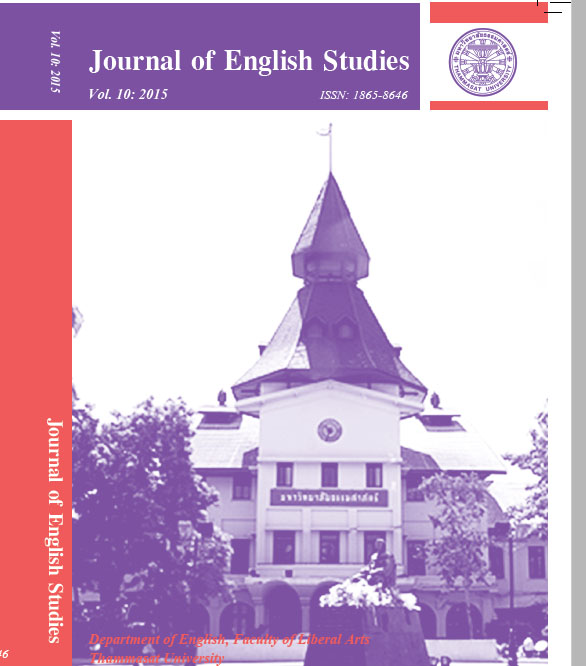Analysis of English Texts in Public Relation Media of Thai Cultural Tourism
Main Article Content
Abstract
The present study was aimed at analyzing English texts in
Public Relation Media of Thai Cultural Tourism in order to compile
3 sets of high-frequency wordlists: proper nouns, technical terms, and
collocations. In the study, a corpus of “Cultural Tourism English” was
compiled from 105 articles concerning cultural tourist attractions in
the north of Thailand. The corpus consists of 225,479 running words
and the program, WordSmith Tools, was used to analyse Tourism
English in the corpus. In the analysis, sets of keywords were used to
analyze and identify the popular names of cultural tourist attractions,
technical terms and collocations which were frequently found in the
corpus. It was found that to call the names of places and objects, like
temples, pagodas, palaces and Buddha images, transliterated names
were used more often. In contrast, English common nouns were mostly
used for general description and for calling shrines, monuments, statues,
sculptures and festivals. Regarding technical terms and collocations,
a lot of general words were considered as technical terms when
co-occurred with particular words. The results of the study were
planned for designing a glossary handbook for local people to give
details of cultural tourist attractions in English to foreign tourists.
A lesson would also be designed for supplementary an ESP course
for training students to use a glossary handbook for taking a local
cultural trip with foreigners.
Keywords: ESP, tourism English, corpus-based analysis


